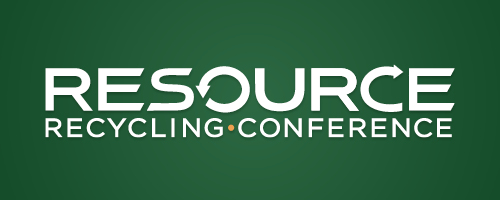
The New York City Council aims to overhaul organics collection, and legislators in Connecticut face criticism from environmentalists over their embrace of gasification. | Esse David Falls/Shutterstock
Members of the New York City Council are looking to amp up organics recycling and push forward on zero-waste goals. Meanwhile, a bill that focuses on gasification facilities awaits the Connecticut governor’s signature.
In addition, a bill to create extended producer responsibility for packaging in New York failed to pass this legislative session.
New York City tackles organics
The New York City Council recently approved a set of five bills that would institute sweeping changes to the way the city handles organic waste.
For starters, the bills require the Department of Sanitation provide mandatory citywide residential curbside organics collection by October 2024 and establish a 2030 target of 100% diversion of city-generated recyclable material from landfills or incinerators.
The bill package would also establish a minimum of two drop-off recycling depots in each of the city’s 59 community districts by the end of 2024 (these would accept hazardous waste) and set up at least 30 organics drop-off sites by April 2024.
The city is in the midst of implementing a separate organics and yard material separation program following some successful pilot programs.
The bills now go to Mayor Eric Adams. Waste Dive reported that the mayor’s office hasn’t taken an official position on the bills.
Connecticut considers gasification modifications
A Connecticut bill currently on Gov. Ned Lamont’s desk has drawn ire from environmental groups, which called HB 6664 “a deeply flawed piece of legislation.”
The bill would allow the Connecticut Department of Energy and Environmental Protection to issue a request for information for new material management providers, including those that use gasification systems, which “convert solid waste into gas through a chemical reaction that does not consist of burning.”
HB 6664 would also alter current law to allow similar technologies to qualify for funding from the Connecticut Green Bank.
A press release from advocacy group Just Zero noted that the bill would “keep the state trapped in a toxic, climate-damaging cycle.”
Kevin Budris, Just Zero’s advocacy director, said several last-minute amendments will “push waste gasification on Connecticut communities at the expense of their health and the environment.”
Those amendments removed the extended producer responsibility program for packaging from the bill, narrowed post-consumer recycled requirements to containers covered by the current deposit return system and eliminated the requirement that municipalities provide food scrap separation and collection by Oct. 1, 2028.
“Waste gasification has the same toxic, climate-damaging impacts as incineration, and it has a long history of failure across Europe and elsewhere,” he added. “Forcing gasification on Connecticut through a last-minute amendment without a public hearing is reckless, irresponsible and undemocratic.”

Learn more in person
To keep up to date on the latest nationwide policy developments, join us at the 2023 Resource Recycling Conference (August 14-16 in Orlando, Fla.). One session, “How Deposit Systems Fit Into Wider Policy Push,” will feature Jules Bailey from the Oregon Beverage Recycling Cooperative and Megan Lane from the Ball Corporation breaking down everything you need to know about bottle bills. Check out the full session lineup and register today.
Other changes under HB 6664
The Connecticut bill, if signed, would also make several alterations to the state’s current materials management laws.
Some of the proposed changes include creating a successor to the Materials Innovation and Recycling Authority (MIRA) – thereby winding down MIRA – and increasing funding for the state’s sustainable materials management account.
Another would be to set a post-consumer recycled content requirement of 25% by 2027 for plastic beverage containers covered by the bottle bill.
Finally, HB 6664 would allow municipalities to identify additional organic materials for diversion and would expand the state’s organics recycling law to include more institutions, such as correctional and educational facilities.


